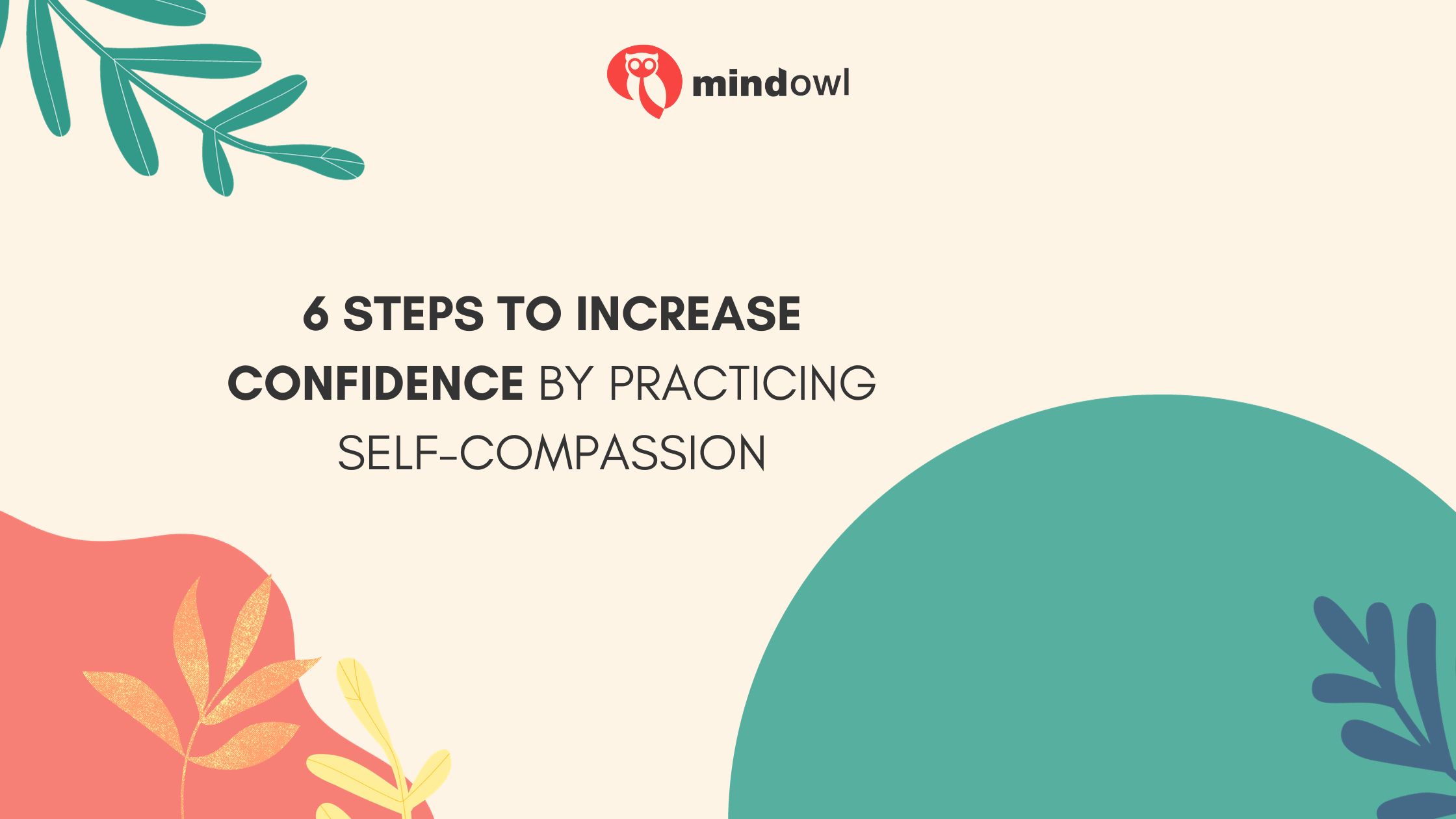Self-compassion is the first step towards self-love. And when we are able to love ourselves, we are better able to hold our heads up high, filled with confidence. Follow these six practical steps to build better confidence by being kind to yourself. Self-compassion is a habit worth the effort!
What is your first response to missing a deadline or failing an interview? Is it to talk yourself down and mumble at how miserable you’ve become? Or do you give yourself a mental talk on how you should have done better? Well, either way, you’re not alone.
However, research has found that those behaviors are unhealthy ways of self-improvement and confidence. A more powerful method with proven long-term effects is self-compassion.
Self-compassion is the act of being kind and understanding to yourself even when you are not producing optimal results. Instead of focusing on your little inner critic, this method helps you become gentler to yourself even in the face of inadequacies.
6 Self-Compassion Habits That Will Boost Your Confidence
Are you on your journey toward healing, wholesomeness, self-improvement, or self-love? Do you want to feel more confident as you go through life?
If so, here are helpful habits to practice self-compassion and ultimately improve your confidence.
You don’t have to do them all at once. Take things step-by-step, and you will move a little further toward your goals each day. You can also check out 20 positive affirmations to help you feel better about yourself.
Let’s dive right in.
1. Change the Voice of Your Inner Critic
While self-judgment is essential to self-improvement, it can take a wrong turn and damage your confidence.
When that little inner critic starts to push you toward negative self-talk, anxiety, and even depression, it is time to replace it with a more compassionate voice. Imagine it as a kind and wise friend who understands you are a flawed human on a slow journey toward improvement.
You must be mindful of this change as it will not happen overnight. A great place to start is positive self-talk. Start each day by standing in front of a mirror and saying things that make you feel good. Make this a habit stacked on something you already do so you always remember to do it. With time, you begin to believe and think positively about what you are saying to yourself.
You can also use daily positive affirmations to reframe your mindset and inward voice when something unexpected happens.
2. Change Your Routines
It may be time to change your routines when you start becoming hard on yourself because you constantly fail to meet certain life expectations.
Self-compassion is understanding when your goals are unrealistic, or your routine is not making you as productive as expected. Ask yourself, “What do I truly need to do better?”
The answer to that question could be taking off items on your to-do lists, planning your day the night before, or simply outsourcing chores. It could also be setting out a day in the week for self-care. Since this step is quite different for everyone, take time out to think about new routines or changes that can make your life better.
Note that being easier on yourself is not the same thing as complacency. A more straightforward and realistic routine will make achieving your goals easier and boost your confidence.
3. Be Mindful of the Moments that Lead to Negative Self Talk
Practicing self-compassion requires a whole lot of intentionality. It will require you to take note of moments in your life that triggers negative self-talk. For example, it could be after an argument with your partner or team meetings at work.
Whatever the case, these small moments of negativity can build up into more complex actions that will ultimately ruin your confidence. So when you are in these trigger situations, take a step towards the change you want by practicing self-kindness. A practical way to do this is by going for a walk immediately after, listening to a song, talking to a friend, or just reaffirming yourself positively.
4. Be Kind to Your Body
We cannot talk about self-compassion without talking about showing kindness to our bodies. You are what you think, do, and eat, so intentionally choose to take care of yourself.
Research has shown that cultivating a healthier lifestyle, like going to the gym or quitting smoking, can inadvertently boost self-confidence.
Self-compassion may or may not require you to make significant lifestyle changes. However, you can start small with simple fitness routines, adding more veggies to your diet, drinking more water, and practicing meditation.

5. Be More Self Aware
There is a lot of introspection and self-awareness that come with self-compassion. This process will require you to look deeper at your character, thought patterns, and coping mechanisms in the face of life stressors.
When you know yourself better, you can then easily point out what you are doing wrong and how you can show yourself more empathy and kindness.
One way to improve your self-awareness is through compassionate letter writing to yourself or journaling. Experts have found writing to yourself to be a therapeutic method of emotional regulation. It helps you make more meaning out of your experiences and know how to react to them better in the future.
6. Be Patient With Yourself
Overall, the journey to self-compassion and confidence is long and bumpy. It would be best if you were patient and intentional with the process. If you struggle with low confidence, it is normal to occasionally slip into negative self-talk — especially when starting your self-compassion journey. Be patient as you grow; with time, you’ll find it easier to forgive, love, and be gentle with yourself.
Increase Your Confidence Through Self-Compassion
The process of self-compassion is unique for every individual. However, the common factors are self-kindness, forgiveness, self-care, and recognizing your humanity. At the end of the day, you will naturally produce confidence when you start seeing yourself through these gentler lenses.
MindOwl Founder – My own struggles in life have led me to this path of understanding the human condition. I graduated with a bachelor’s degree in philosophy before completing a master’s degree in psychology at Regent’s University London. I then completed a postgraduate diploma in philosophical counselling before being trained in ACT (Acceptance and commitment therapy).
I’ve spent the last eight years studying the encounter of meditative practices with modern psychology.

